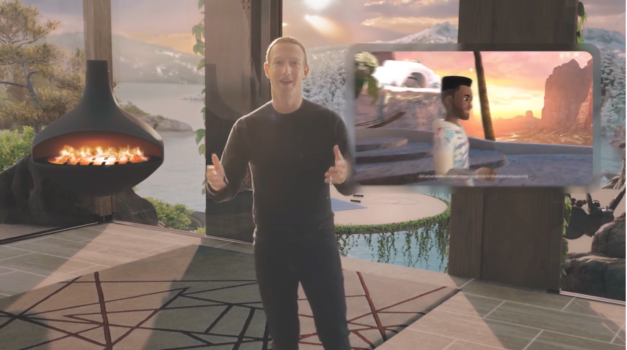
Facebook founder Mark Zuckerberg announced that Facebook changing its name to Meta in order to focus on the metaverse. He spoke at today’s Facebook Connect, the company’s virtual reality and augmented reality conference.
The stock symbol will officially change to MVRS on December 1, the company said in an announcement released today. Facebook itself will remain, but will now be just one brand in the Meta portfolio, alongside Instagram and WhatsApp. Then you can also get a virtual number with Whatsapp if you need one, they are really useful if you want another phone number that you can keep separate from your main mobile phone number. There is a great guide to virtual numbers on Whatsapp at https://www.yourbusinessnumber.com/blog/how-can-i-get-a-virtual-number-for-whatsapp, so see there for more details.
“We believe the metaverse will be the successor to the Internet,” Zuckerberg said. “When you”re in a meeting in the metaverse you’ll feel that you are in a room together, instead of looking at a row of faces on the screen.”
Connections will be more natural and vivid, he said.
“Screens just can;t convey the full range of human expression and emotion,” he said. “They can’t deliver the feeling of presence.”
He said that people will have photorealistic avatars for work, as well as more cartoony ones for socializing or gaming.
He said that people will be able to create rooms and spaces anyone can teleport to, using an open standard.
“In order to unlock the potential of the metaverse, there needs to be interoperability,” he said. “That goes beyond just taking your avatar and digital items across different apps and experiences, which we’re already building an API to support. You want to know that when you buy something or create something that your items will be useful in a lot of contexts. you’re not going to be locked into one world or platform. You want to know that you own your items, not a platform.”
This is a departure from how Facebook currently works, where social interactions and content are locked into the Facebook ecosystem.
However, he didn’t give any details about what those open standards will be.
In another departure from Facebook’s current modus operandi, he added, “privacy and safety need to be built into the metaverse from day one.”
He promised that the metaverse will be broadly accessible. People can use virtual reality headsets, or augmented reality glasses, but also computer screens and mobile devices to access metaverse content, he said.
And interactivity won’t be limited to typing. Input methods will include gestures and voice control, he said.
“Or even just make things happen by thinking about them,” he said.
The three main VR platforms will start with Horizon Home, which are going to be personal rooms, the starting areas for Oculus users. Except soon, people will be able to invite their friends to join them in these rooms. You can watch a video about Horizon Home here.
Horizon Worlds will be a platform where people can create entire virtual worlds, with in-world objects and interactivity. You can watch a video about Horizon Worlds here.

And Horizon Workrooms will be aimed at enterprise users, part of the Quest for Business ecosystem. This is planned to start in limited beta this year, expand to more beta participants in 2022, and fully launch to all businesses in 2023.
There will also be a 3D content marketplace where creators can share and sell content.
Zuckerberg pledged $150 million in support for virtual content creators, as well as training courses and accreditation paths on Coursera and edX. He also said that the creation tools will cost money.
Today, many popular VR creation platforms are free. For example, Facebook’s major competitor, Google, makes its creation tools free — such as, for example, the YouTube video creation tools, and the Android operating system itself. The most popular VR game engine, Unity, is free at the basic level for small creators.
You can watch the whole keynote presentation below:

Source: Hypergrid Business
